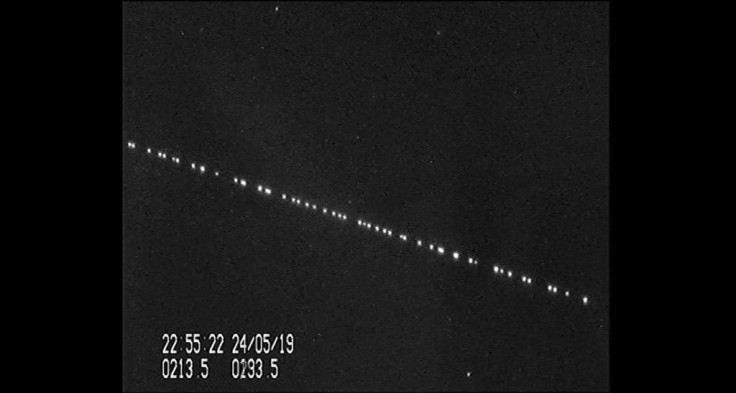How To Spot SpaceX’s New Starlink Satellites In The Sky

Following the launch of SpaceX’s new batch of Starlink units, a few websites have prepared new features that will allow users to spot the satellites in the sky. According to a satellite tracker, the new Starlink units are expected to be visible within the next couple of days due to current weather conditions.
Earlier this week, SpaceX launched its Falcon 9 rocket to deploy an additional 60 satellites as part of its Starlink project. This marked the second batch of satellites to be deployed for the project following an initial launch in May.
According to Marco Langbroek, a satellite tracker from the Netherlands, since the new batch of satellites is operating at a lower altitude compared to their predecessors, they will be more visible. However, Langbroek noted that this might only happen for the next couple of nights due to weather conditions in various regions around the globe.
“Due to the date and time of launch, conditions for visibility are not so good for Northwest Europe, where I am, nor indeed for the US, as they were in May,” he told Space.com.
“Because they seem to aim for a lower operational orbital altitude (350 km) than the previous 60 did (those were inserted at 440 km, so already 100 km higher than what this new batch of 60 aims for, and eventually were brought to 550 km), I expect these new objects to stay relatively bright, i.e. naked eye objects,” he added.
Those looking to catch a glimpse of SpaceX’s new satellite may do so with the help of various websites. One of them is Heavens Above, which recently launched a special page to track the new Starlink satellites. When using the site, users need to specify their location in order to find out when the satellites will be visible to their area.
Another satellite-tracking website that users can turn to is N2Y0. Upon visiting the site, it will automatically pick up the users’ coordinates from their browser to show when the satellites will pass over their location.
CalSky is another satellite that skywatchers can use to keep track of the new Starlink units. This website allows users to input the exact official number of each satellite in order to track its current location.
© Copyright IBTimes 2024. All rights reserved.





















